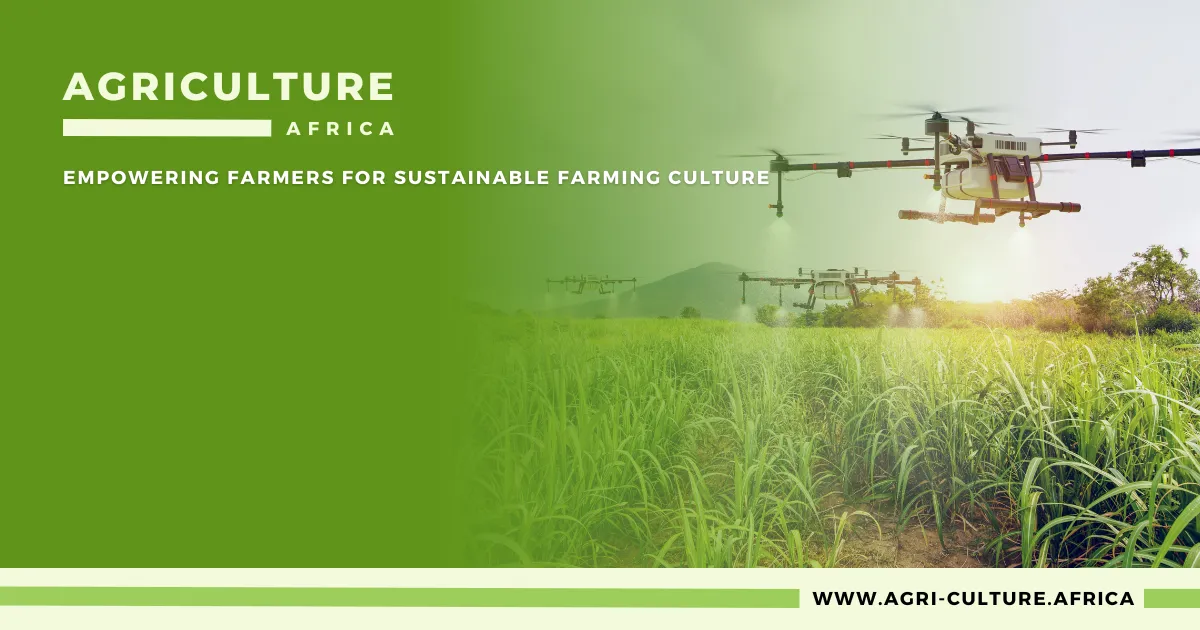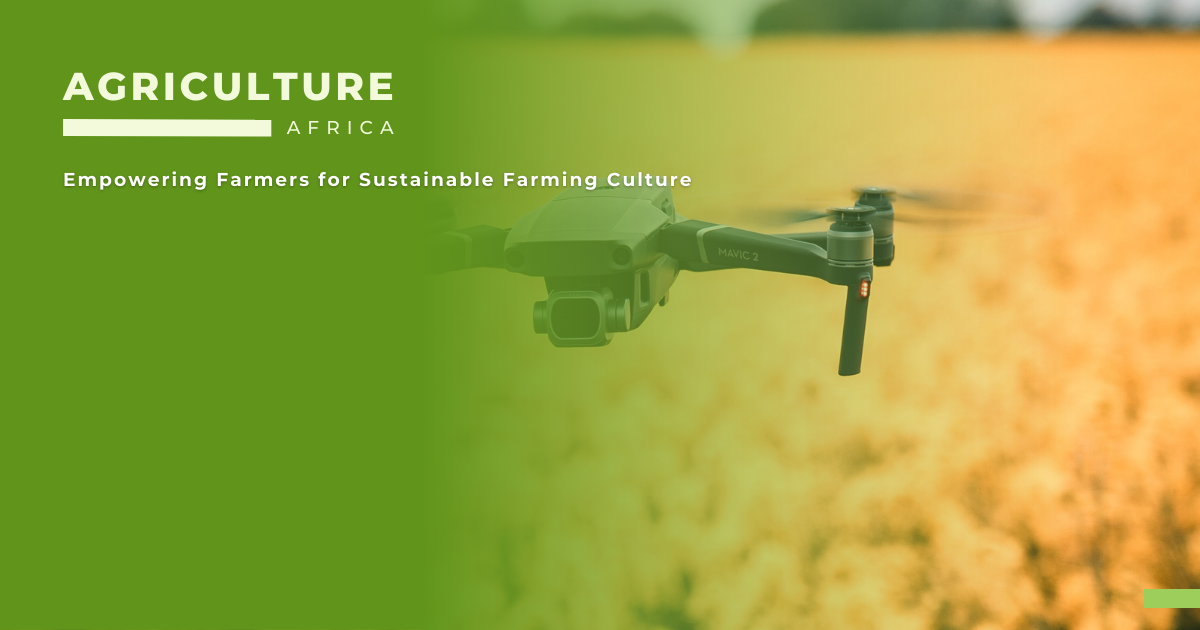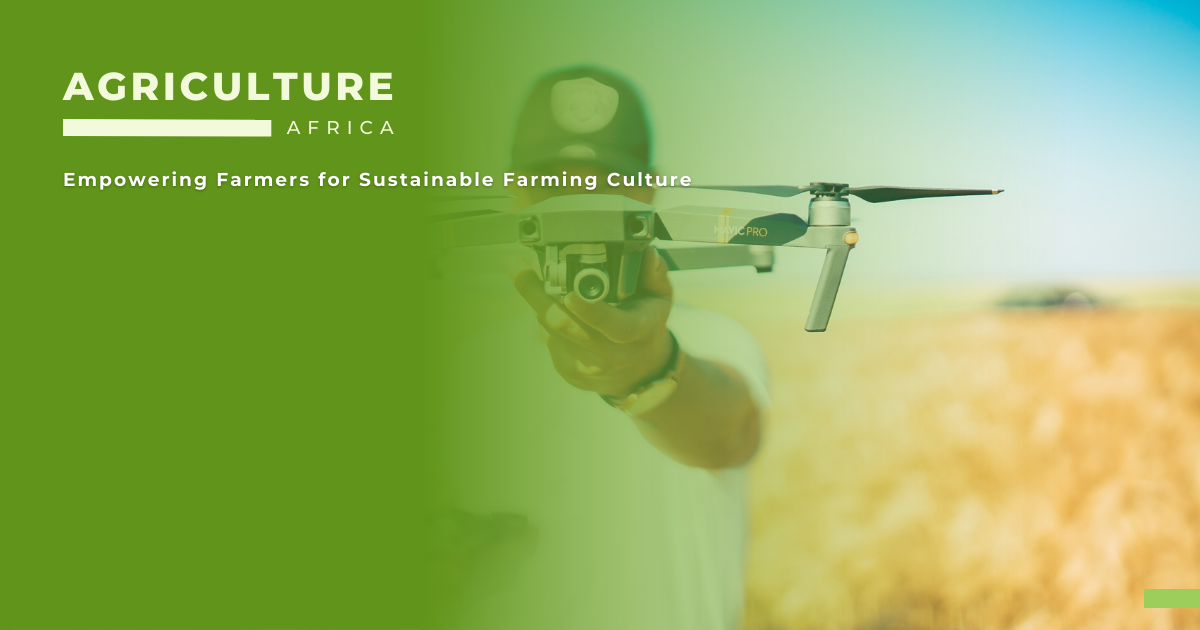
Empowering African Farmers for Sustainable Farming Culture
Discover how drones in agriculture are helping African farmers optimize their crop management practices and improve yields.
Drones are a new tool that can assist African farmers in optimising crop management practises and increasing yields. Farmers can make more informed decisions about their farming operations, reduce waste, and increase profits by using drones for crop monitoring, irrigation management, and pest control. However, adopting this technology necessitates addressing issues such as cost, technical expertise, and data privacy and security. Drones in agriculture can help African farmers overcome challenges and achieve greater success in their farming operations with the right support and training.
Crop monitoring is one of the most common uses of drones in agriculture. Farmers can collect data on crop health and growth rates by using drones outfitted with cameras and sensors. This information can be used to pinpoint problem areas in the field, such as nutrient deficiency, water stress, or pest infestations. Drones can also provide detailed maps of crop yield and quality, allowing farmers to make informed crop management decisions such as fertilisation or irrigation.
Drones can be especially useful for crop monitoring in Africa, where many farmers work on small plots of land. Farmers can cover large areas of land quickly and easily with drones, eliminating the need for manual inspections. This can save farmers time and money while allowing them to focus on other aspects of their farming operations.

Irrigation management is another agricultural application for drones. Farmers can identify areas that require more or less water by surveying the field with drones. This data can be used to adjust irrigation schedules and improve water use efficiency, resulting in less water waste and higher crop yields.
Irrigation management is critical in Africa, where access to water can be limited and unpredictable. Drones can assist farmers in optimising irrigation practises, ensuring that crops receive the appropriate amount of water at the appropriate time. This can lead to increased crop yields, improved crop quality, and less water waste.
Pest infestations can significantly reduce crop yields, resulting in lower crop quality and lower farmer profits. Drones with sensors and cameras can detect pest infestations early, allowing farmers to intervene before the damage becomes severe. Drones can also deliver targeted pesticide sprays, reducing the need for broad-spectrum pesticides, which can harm beneficial insects and pollinators.
Drones can provide a more efficient and effective pest control solution in Africa, where many farmers rely on traditional pest control methods. Farmers can quickly and easily identify and treat pest infestations using drones, reducing crop losses and increasing yields.
There are numerous advantages to using drones in agriculture. Drones can assist farmers in making informed crop management decisions by providing real-time data on crop health and growth. Drones can also help farmers cover more ground in less time by reducing the time and labour required for manual field inspections. Drones can also improve crop management practises’ accuracy and precision, reducing waste and increasing crop yields.
Drones can be especially useful in Africa, where many farmers work on small plots of land with limited resources. Farmers can optimise their crop management practises by using drones, resulting in higher crop yields, better crop quality, and increased profits. Drones can also help farmers reduce their environmental impact by reducing the use of water and pesticides.

However, there are some risks associated with the use of drones in agriculture. The cost of technology is one of the most significant challenges. While the cost of drones has come down in recent years, they can still be prohibitively expensive for many African farmers. Furthermore, there may be regulatory and legal barriers to using drones in agriculture, such as obtaining permits or complying with privacy laws.
Another issue is a lack of technical knowledge among farmers. Many farmers may lack the necessary skills to operate and maintain drone technology, which could limit its adoption.
Concerns have also been raised about data privacy and security. Drones collect a large amount of data on crop health, yield, and other variables, and it is critical to ensure that this data is secure and not accessed or misused by unauthorised parties.
Despite these obstacles, the advantages of using drones in agriculture far outweigh the risks. Farmers can learn to use drone technology to optimise crop management practises and increase yields with the right support and training. Governments and organisations can also provide financial and technical assistance to farmers in order to help them adopt this technology, especially in areas with limited resources and infrastructure.
Your donation fuels change! Help Agriculture Culture in Africa empower farmers with resources, training, and access to innovation. Together, we can revolutionize African agriculture.
Empowering Sustainable Growth and Innovation in African Agriculture
Sign up to our newsletter